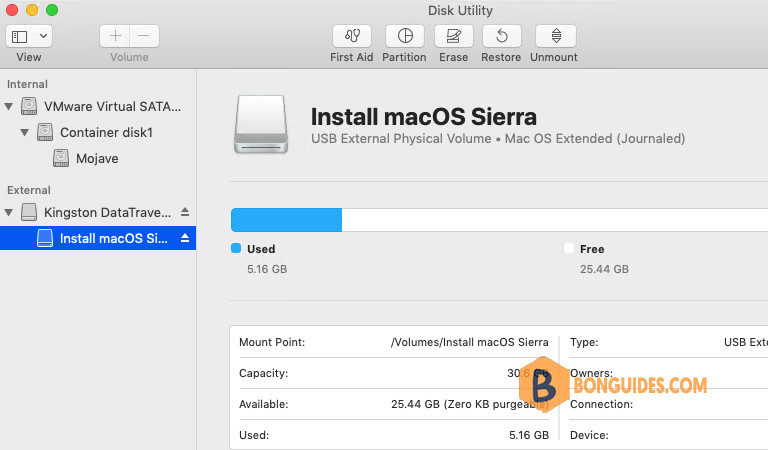Table of Contents
You can use an external drive or secondary volume as a startup disk from which to install the Mac operating system.
You don’t need a bootable installer to upgrade macOS or reinstall macOS, but it can be useful if you want to install macOS Sierra on multiple computers without downloading the installer each time, or you’re unable to install a compatible macOS from the Finder or macOS Recovery.
What You Will Need Before Starting
- USB flash drive or other secondary volume with at least 8 GB of available storage, formatted as Mac OS Extended.
- Installer for macOS Sierra. To get the full installer, your Mac must be using the latest version of OS X El Capitan, the latest version of macOS Sierra, or any later version of macOS.
- Download a macOS Sierra installer from Apple.
Download a macOS Sierra installer from Apple
1. Visit this link https://support.apple.com/kb/HT211683 then download a macOS Sierra installer from Apple. You will download a disk image (.dmg) file for that macOS.

2. Double-click the .dmg file to open it and see the .pkg file within.
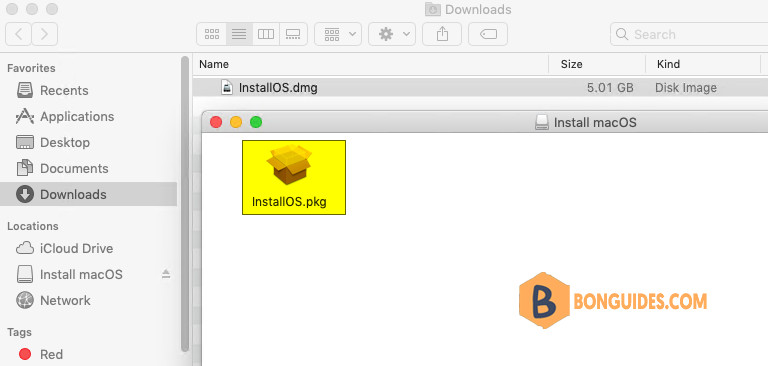
3. Double-click the .pkg file, then follow the onscreen instructions. This installs the macOS installer into your Applications folder.
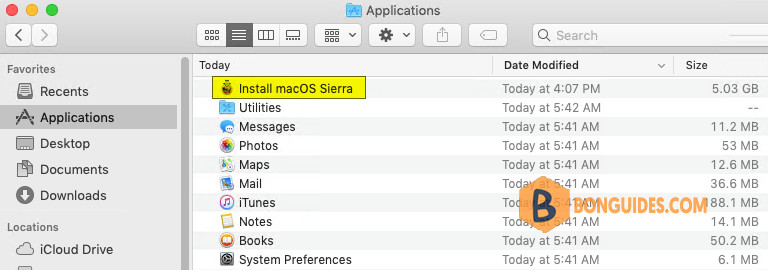
Format the USB device
1. Insert the USB flash drive that you’re using for the bootable installer into your Mac.
2. Open Disk Utility then enable Show All Devices option.
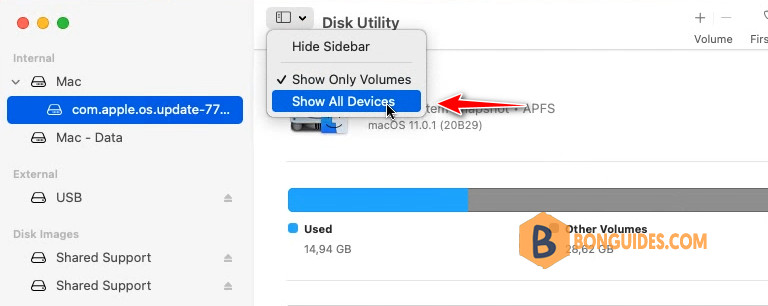
3. Select the USB stick form the left side then click on button.
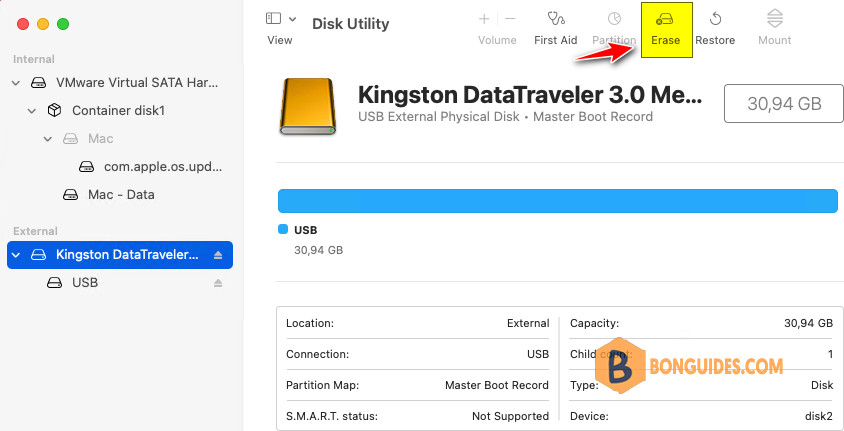
4. Erase the USB Stick as follows:
- Name: Untitled
- Format: Mac OS Extended (Journaled)
- Scheme: GUID Partition Map
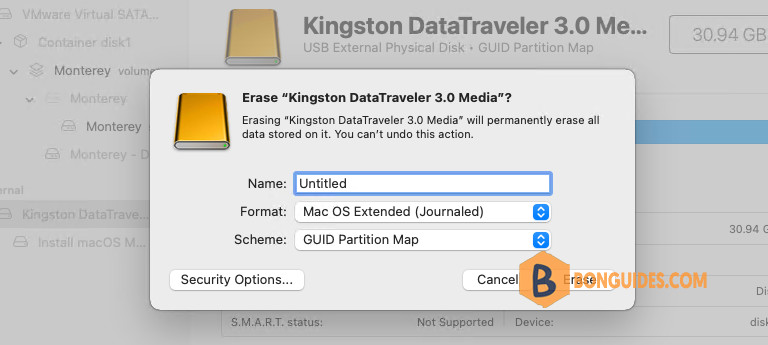
Now, the USB stick was formatted, you can close the Disk Utility then moving to next steps to create an macOS USB bootable stick.
Create a macOS Bootable USB Installer
1. Open Finder then navigate to the Applications folder.
2. Right click on the downloaded macOS Sierra installer then select Show Package Contents.
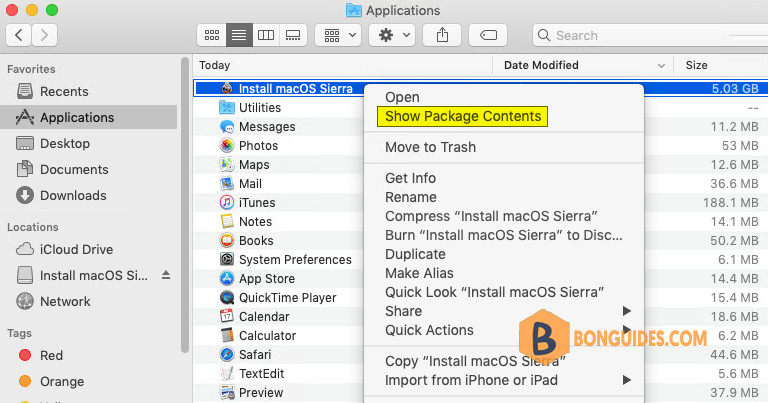
3. Enter the Contents folder and right-click on the Resources folder then select New Terminal at Folder.
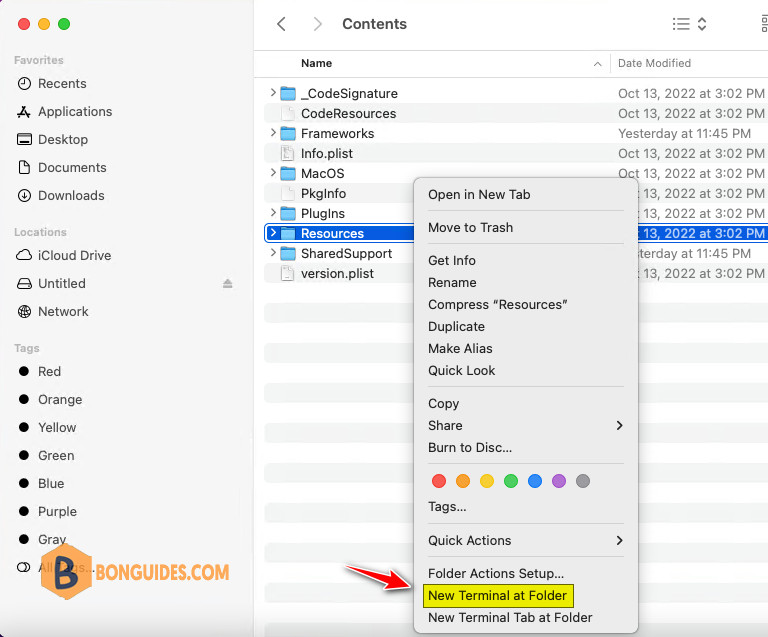
4. Type or paste the command below into Terminal, then press . If the volume has a different name, replace Untitled in the command with the name of your volume.
sudo plutil -replace CFBundleShortVersionString \
-string "12.6.03" /Applications/Install\ macOS\ Sierra.app/Contents/Info.plistsudo ./createinstallmedia --volume \
/Volumes/Untitled --applicationpath /Applications/Install\ macOS\ Sierra.app5. When prompted, type your administrator password. Terminal doesn’t show any characters as you type. Then press Return.
6. When prompted, type to confirm that you want to erase the volume, then press Return. Terminal shows the progress as the volume is erased then create an bootable USB device.
flame:Resources bonben$ sudo plutil -replace CFBundleShortVersionString -string "12.6.03" /Applications/Install\ macOS\ Sierra.app/Contents/Info.plist
Password:
flame:Resources bonben$ sudo ./createinstallmedia --volume /Volumes/Untitled --applicationpath /Applications/Install\ macOS\ Sierra.app
Ready to start.
To continue we need to erase the disk at /Volumes/Untitled.
If you wish to continue type (Y) then press return: y
Erasing Disk: 0%... 10%... 20%... 30%...100%...
Copying installer files to disk...
Copy complete.
Making disk bootable...
Copying boot files...
Copy complete.
Done.It could take several minutes to complete. Once done, you can remove the USB stick from your Mac then boot into new Mac to do a fresh installation.
